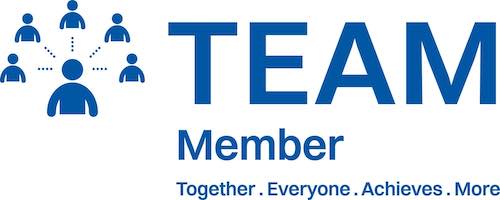The Benefits of Hiring Candidates With Transferable Skills

Hiring candidates with transferable skills can offer several benefits to organisations. These individuals bring a wealth of knowledge and experience from their previous positions, making them valuable assets to any team. In this blog we'll explore the top reasons why hiring employees with transferable skills is critical for businesses looking to succeed in today's competitive job market.
1. Reduced training time
One of the most significant advantages of hiring employees with transferable skills is that they require less time and resources for upskilling. They can use their existing skill sets to learn new information and workflows quickly, becoming productive team members faster. This saves the organisation's time and money in onboarding.
2. Adds diversity

Diversity is known to improve innovation, boost productivity, and prepare companies for change. If your current team comprises of people with exceptional ‘hard’ skills, it could be a good idea to mix things up and hire someone with transferable soft skills. It's an excellent opportunity to bring fresh perspectives into your organisation while fostering creativity and collaboration.
3. Promotes adaptability and agility

Applicants with transferable skills can quickly adapt to new positions or work on multiple projects simultaneously. It's easier for them to adjust to changing organisational needs or take on additional responsibilities. This agility can help companies navigate business uncertainties and market changes more effectively.
4. Enhanced problem-solving
Candidates with good problem-solving skills are also gifted in critical thinking and decision-making, which are essential qualities that every employer looks for in their employees. As such, they have a solid foundation to analyse complex problems, identify solutions, and make informed decisions that benefit the organisation.
5. Improved retention
By recognising and using the transferable skills of new hires, employees grow and thrive in new ways while being more engaged, motivated, satisfied with their jobs - meaning they’ll stay with a company longer - saving on hiring costs over time.
6. Leadership potential

Transferable skills are often associated with leadership traits such as communication, teamwork, and adaptability. Hiring candidates with these skills allows employers to identify future leaders within the organisation. These individuals can contribute to their immediate roles and as potential candidates for management positions or leadership development programs.
7. Knowledge exchange

Candidates bringing knowledge and experiences from their previous positions can foster collaboration of ideas and best practices, enabling organisations to build a broader knowledge base. The exchange of knowledge can increase efficiency, improve processes, and create a culture of continuous learning.
Now that we've explored why hiring employees with transferable skills is critical let's dive into practical steps you can take to attract them:
1. Hire outside your industry
Ensure your current hiring strategy isn’t filtering out highly capable professionals looking to shift careers or industries. Career-shifting candidates may not look like they have the right skills for the role you’re trying to fill at first glance, but many high-performers in one industry are capable of transitioning successfully to another.
2. Write better job descriptions
Take great care when crafting job descriptions if you want to attract new people into your industry. Outline the job responsibilities and describe how these responsibilities require the application of transferable skills and the impact they have on the organisation.
3. Emphasise the significance of soft skills
To help evaluate soft skills during the hiring process, identify the essential soft skills required to succeed in the position: communication, creativity, or time management, for example. Craft interview questions that focus on these skills. Additionally, consider contacting applicant references to ask about their soft skills.
4. Recruit for potential
Recruiting for potential can be a valuable approach when HR considers hiring applicants with transferable skills. With the right work environment and support, candidates with these abilities can excel in their new positions and help achieve company goals.
In conclusion...

Hiring employees with transferable skills is critical for businesses looking to succeed in today's competitive job market. They bring a wealth of knowledge and experience from their previous positions, making them valuable assets to any team. By following the practical steps outlined in this article, you can attract top talent with transferable skills and take your organisation to the next level.





